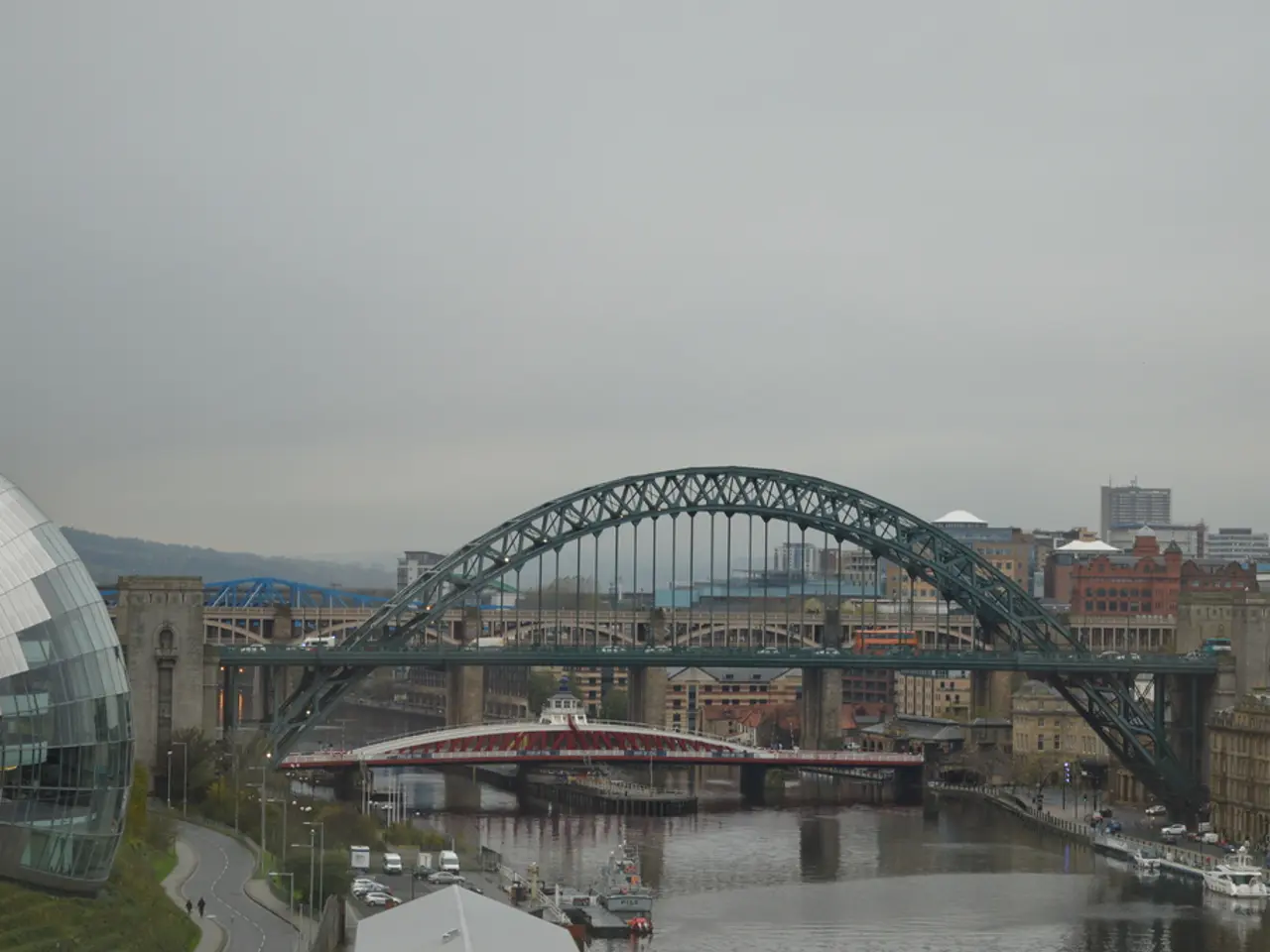Unleashing Germany's Potential: Klingbeil's Growth Booster Connects Economy and Sustainability
Economic Stimulus: Klingbeil Signals Clear Intent to Bolster Economy - Commission Tasked with Proposing Worker Radiation Safety Directive Regarding Ionizing Radiation Exposure Threats
Get ready for the Parliament's big thumbs-up on Thursday for the Growth Booster initiative! This game-changing bill, masterminded by Finance Minister and SPD leader, Lars Klingbeil, is all about kickstarting Germany's economy by offering significant tax breaks to businesses and setting new investment incentives.
The heart of this plan revolves around accelerated depreciation options for movable economic goods, like machines, over a mere three years. And as we march into 2028, we're looking at a gradual reduction in the corporate tax rate, with a targeted goal of 10% by 2032. This is a whopping decrease from the current 15%, making Germany an alluring destination for investments on the global stage[3][4].
But it's not just about the dough. Klingbeil believes in creating a level playing field for both consumers and businesses when it comes to energy prices. To achieve this, plans are underway to slash network charges, ax the electricity tax for industrial companies, and scrap the gas storage surcharge[1].
Rejuvenating the Economy: Breaking Down the Growth Booster
- Tax Incentives and Corporate Tax Cuts: Businesses investing in machinery, equipment, and electric vehicles are in for a treat, thanks to the proposed tax write-off for the next three years. Plus, starting in 2028, the corporate tax rate will progressively decrease by 1% each year, reaching a stable 10% in 2032[3][4].
- Making Energy Affordable: In response to the energy crisis, the government intends to lower energy costs by means of subsidies that ensure full gas storage capacity, electricity tax cuts for industries, and the government's increased contribution to electricity grid expansion costs. Beginning from January 1 next year, these adjustments should translate into more wallet-friendly power bills for householders and businesses alike. Despite energy prices having softened post the 2022 crunch, they remain high in certain industries[1].
- Investment in Infrastructure and Climate Action: With a hefty 115 billion euros in the pipeline, this bill banks on substantial investments in mobility, digitalization, education, research, and climate initiatives. The crown jewel is an $100 billion+ injection into Deutsche Bahn by 2029, fueling economic resilience and sustainability in Germany[1].
The Cascading Impact on Germany's Economy
- The Growth Booster is primed to combat a forecasted two-year economic downturn and impending stagnation by stimulating private investment and enhancing corporate tax allure[1][5].
- By slashing corporate taxes and extending investment incentives, the program is designed to spark growth-oriented investments, fostering innovation, competitiveness, and a more dynamic German economy[3][5].
- Energy cost reductions will alleviate operational expenses for businesses and boost their competitiveness amidst the fluctuating energy market landscape[1].
Long story short, Klingbeil's Growth Booster strikes a chord by balancing tax relief, strategic investments, and energy cost reductions, with the collective goal of driving growth, strengthening business competitiveness, and aiding Germany's energy transition over the coming decade[1][3][4].
Community policy will likely be revised to align with the Growth Booster's focus on fiscal incentives and sustainable economic growth. This could involve vocational training programs to equip the workforce with skills necessary for the revitalized businesses that the Growth Booster aims to attract and foster.
The Growth Booster's tax breaks and investment incentives for businesses could also have widespread implications for German politics and general-news, as the revitalized economy may impact employment rates, income distribution, and corporate involvement in social and environmental issues.






